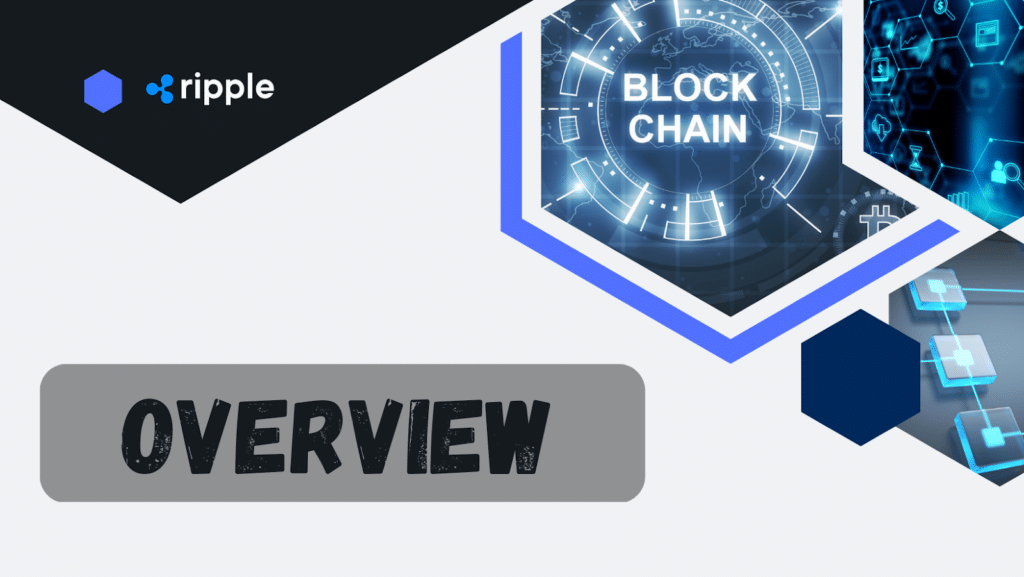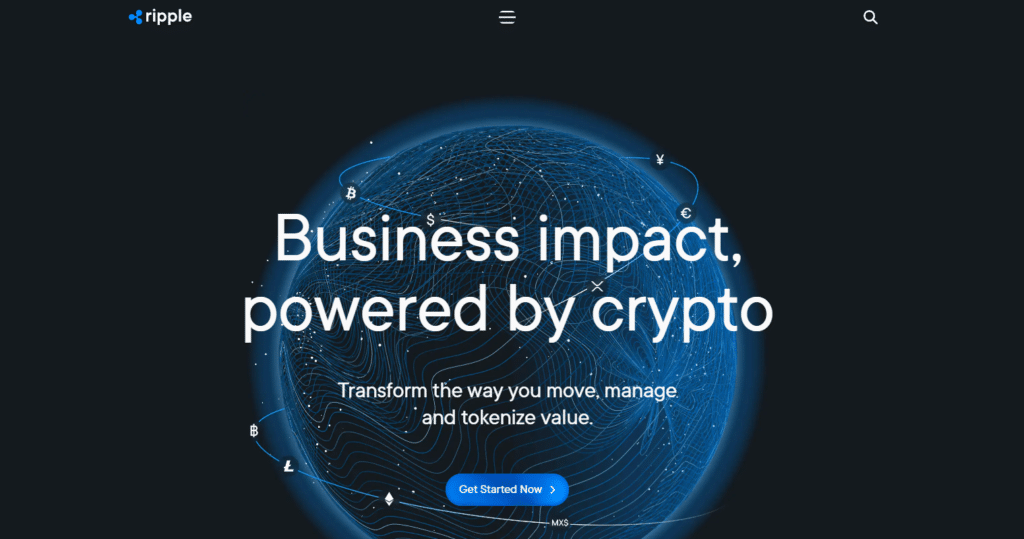Are you looking for a comprehensive review of Ripple Blockchain Solutions? This review explores how Ripple’s blockchain technology is transforming the world of finance. It is Through its fast and secure cross-border payments, smart contracts, and more.
Discover the benefits and drawbacks of Ripple. Gain insight into its potential impact on the future of finance. Please read our review now!
It revolutionizes cross-border payments and other financial processes. As we delve deeper into the topic, we’ll examine the key features of Ripple. We will also delve into their potential for financial and business transformation.
This has several key features that set them apart from traditional banking systems. One of the main features is the speed with transactions processed in seconds. It is faster than conventional banking systems. Conventional banking systems can take several days to process transactions.
Another feature of Ripple is cost-effectiveness. Traditional banking systems involve several intermediaries, each adding a fee to the transaction. It can result in high transaction fees, especially for cross-border transactions. This blockchain applications cut the need for intermediaries, resulting in lower transaction costs.
This distributed ledger technologies facilitate fast, secure, cost-effective cross-border payments and other transactions. The two key distributed ledger technologies used by Ripple are:
1. RippleNet This is a global network of banks and financial institutions. This blockchain technology uses this to help with cross-border payments and other transactions. This uses a distributed ledger to record transactions. It offers faster settlement times. It also offers lower transaction fees compared to traditional payment methods.
2. XRP Ledger The XRP Ledger is a decentralized digital ledger. It records transactions on this network. It is open-source and decentralized. That means anyone can access it and take part in transaction validation. The XRP Ledger uses a consensus algorithm. It is known as this Protocol Consensus Algorithm (RPCA).
It validates transactions, allowing faster and more secure transaction processing. Traditional banking systems rely on a central database. This ledger is distributed across many nodes in the network.
If you’re looking for a fast, secure, and reliable blockchain solution for your business, this may be the perfect choice for you! Try it now!
Pricing Want to inquire about pricing for this solutions and blockchain services? You should reach out to their sales team.
To contact this sales team:
Visit their official website and look for a “Contact Sales ” page. You will likely find a contact form there for their sales department. Fill out the form. Provide your name and organization. Please provide contact information and briefly describe your interest in their solutions. A member of their sales team should get back to you shortly. That is if your organization is a potential fit for its blockchain services.
Use Cases This technology enables fast, secure, low-cost cross-border payments. Using this, financial institutions can settle transactions in real-time, regardless of location.
2. Crypto Liquidity This technology also helps with the exchange of digital assets. Like, between different cryptocurrencies and fiat currencies. It enables seamless conversion between other currencies. It can help increase liquidity in the cryptocurrency markets.
This technology supports the implementation of CBDCs. By using this technology, central banks can leverage the benefits of blockchain technology. It will increase the efficiency, security, and transparency of their payment systems.
Comparison With Other Blockchain Solutions There are a few key differences when comparing Ripple with other blockchain solutions . These are the advantages and disadvantages of using Ripple over other blockchains:
A. Advantages Of Ripple 1. Faster Transaction Speeds This consensus algorithm allows for faster transaction speeds than other blockchains. It can take several minutes or even hours to complete.
2. Lower Transaction Fees This transaction fees are lower than other blockchain solutions . It is an attractive option for businesses looking to reduce costs.
3. Focus on Cross-Border Payments This primary focus is facilitating cross-border payments. It is a unique feature that sets it apart from other blockchains.
4. Regulatory Compliance This has worked with regulatory bodies. It is to ensure that its blockchain solution follows various regulations. Which can be a concern for businesses that want to ensure they operate in a legal manner.
B. Disadvantages Of Ripple 1. Centralization This is more centralized than other blockchain networks. It can concern some users who focus on decentralization.
2. Limited Use Cases This focus on cross-border payments is a strength. But, there may be better solutions for other types of transactions.
3. Dependency on XRP This On-Demand Liquidity feature relies on using XRP. It may be a barrier for some hesitant businesses to adopt a cryptocurrency.
4. Lack of Development Community This has a smaller development community. It can limit the availability of tools and resources for users.
Ripple’s Impact on the Financial Industry This had a profound impact on the financial industry. It is through its innovative blockchain network. Particularly in cross-border payments and the implementation of smart contracts.
1. Transforming Cross-Border Payments Traditional cross-border payment systems could be faster and more affordable. It can take up to several days to process transactions and incurring high fees. This technology addresses these pain points by offering a more efficient alternative:
A. Fast Transactions
B. Low Fees
C. Security and Transparency
2. Smart Contracts And Streamlining Financial Processes This platform also enables smart contracts. These contracts can streamline various financial processes, such as:
A. Automated Payments Smart contracts can trigger payments once predetermined conditions are met. It removes the need for manual intervention and reduces the risk of error or delay.
B. Customizable Agreements The flexibility of smart contracts allows for customizable terms and conditions. It enables more efficient and secure agreements between parties.
C. Regulatory Compliance Smart contracts follows specific regulatory requirements. It ensures that transactions follow local laws and regulations.
3. Ripple’s Partnerships With Major Financial Institutions This blockchain network has formed strategic partnerships with major financial institutions. It includes banks, payment providers, and remittance companies. It integrate its technology into their systems.
These partnerships have helped increase Ripple’s blockchain strategy and credibility in the industry. It also helps increase blockchain adoption. It provides financial institutions with a competitive advantage. It is by offering faster, cheaper, and more secure services to their customers.
FAQs What is Ripple Blockchain Solution? This is a blockchain-based solution suite. It helps with cross-border payments, remittances, and foreign exchange transactions.
What is RippleNet? This is a global network of banks and financial institutions. This blockchain technology use it to make cross-border payments faster and cheaper. This allows faster settlement times and lower transaction fees than traditional payment methods.
How does Ripple differ from other blockchain networks? This differs from other blockchain networks in several ways. For example, Ripple is more focused on facilitating cross-border payments and remittances. In comparison, the other blockchains are for a broader range of transactions. Ripple also has a more centralized governance model than some other blockchains.
How secure is Ripple’s blockchain technology? Ripple has high security. It uses a range of measures to ensure the safety of its blockchain technology. These measures include advanced encryption, secure key management, and regulatory compliance.
How can businesses and financial institutions use Ripple’s blockchain solution? Businesses and financial institutions can use Ripple to help with cross-border payments. It can be used for remittances, foreign exchange transactions, and more. By leveraging the benefits of Ripple’s blockchain technology, businesses can reduce transaction costs, improve efficiency, and manage global liquidity more effectively.
What is the future of Ripple Blockchain Solution? Ripple plans to continue developing and expanding its blockchain solution in the future. It involves new partnerships with banks and financial institutions.
Is Ripple a private blockchain? Ripple is not a completely private blockchain. It is more centralized than the other public blockchain network.
What is Ripple blockchain ecosystem? The Ripple blockchain ecosystem is a network of stakeholders and technologies. It also has use cases that use Ripple’s blockchain technology to have better supply chain management.


